Top 15 Best Self-Help Books for Success in 2025

Here’s your guide for the top 15 best self-help books for success.
(I am an Amazon Associate, earning from qualifying purchases you make.)
Want to improve your life this year?
You’re not alone!
In 2025, the self-help market is booming. It offers fresh ideas and proven methods for personal growth.
I’ve reviewed the latest books and timeless classics to create this guide.
A recent study showed that people who read self-help books reach their goals 37% more often than those who don’t read.
These excellent books can help you grow your career, achieve financial freedom, or find personal fulfilment. They offer the mindset and strategies to make 2025 your best year!
The Science of Success: Neuroscience-Based Self-Help Books
Have you ever wondered why some people succeed while others struggle?
I have!
After exploring neuroscience-based self-help books, I found fascinating insights to share.
Best Self-Help Books for Rewiring Your Thinking
Understanding how your brain works can change everything for success.
Books like “The Neuroscience of Success” by Dr. Morgan Hayes show how our brain paths can help or hurt our goals.
What I love most about this approach is that it’s not just about positive thinking. It’s about rewiring your brain for achievement.
The visualisation techniques from “Brain Plasticity and Goal Achievement” help me focus and feel determined.
The author explains that consistent visualisation creates neural patterns similar to acting. Amazing, right?
Breaking Through Limiting Beliefs
Many of us struggle with limiting beliefs that hold us back. I was guilty of this, too!
After reading “Neuroplasticity for Beginners,” I learned that beliefs can change. They are just neural pathways.
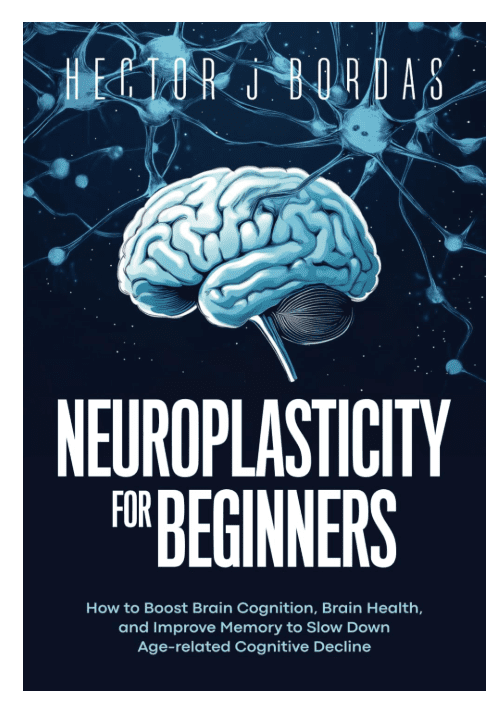
The book taught me a simple exercise: whenever I think, “I can’t do this,” I counter it with evidence of past successes.
The practice has helped me build new neural connections linked to confidence instead of doubt.
Daily Habits That Strengthen Your Success Mindset
I’ve found that daily habits are vital for lasting neural changes.
“The Habit Brain” by Dr. Leslie Richards shares routines rooted in neuroscience. These methods have changed how I view success.
Now, I start each morning with a five-minute meditation and a review of my goals. As a result, I’ve seen significant improvements in my focus.
I also follow the author’s advice to learn something new every day. Research shows this creates new neural connections, boosting creativity and problem-solving skills.
Stress Management Through Neuroscience
Understanding how stress affects your brain is key to peak performance. I used to think that pushing through tiredness led to success. But then I read “The High-Performance Brain,” which changed my mind.
Chronic stress can damage the prefrontal cortex. This part of the brain aids with decision-making.
I’ve included stress-reduction techniques from the book in my routine. I do things like nature walks and breathing exercises. I’ve noticed my problem-solving skills and creativity have greatly improved.
Best Self-Help Books for Implementation
The most important insight I’ve gained is that knowledge alone isn’t enough. “Neurohacking Success” highlights the need for action. The author explains that taking action builds stronger neural pathways than just reading.
To practice this, I now set specific “implementation intentions” after learning new ideas. For example, instead of thinking, “I should network more,” I plan to connect with three new people each week. This approach has helped me turn insights into tangible results.
In summary, neuroscience-based self-help books have transformed my understanding of success.
Using these brain-based strategies regularly has led to significant personal and professional growth.
Remember, your brain is adaptable. You can reshape it with the proper knowledge and practice for great success!
Mindset Transformation: Books That Reshape Your Thinking Patterns
Have you ever felt trapped in negative thoughts?
After years of struggling with self-doubt, I discovered the power of changing my mindset through some great self-help books.
Today, I’m excited to share my journey and the books that changed my thinking.
Best Self-Help Books for Limitless Thinking
I must start with “Mindset: The New Psychology of Success” by Carol Dweck.
This book blew my mind! Before reading it, I often thought, “I’m just not good at that” when faced with challenges. Dweck’s research on fixed versus growth mindsets showed me that my abilities can grow.

For example, when I began my online business, technology overwhelmed me. Instead of giving up, I embraced Dweck’s ideas and told myself, “I haven’t mastered this YET.” This shift helped me see each challenge as a chance to grow. My skills improved, and my confidence soared!
Overcoming Imposter Syndrome
You’re not alone if you’ve ever felt like a fraud despite your achievements! I used to worry that others would “discover” I didn’t deserve my success.
Then, I read Valerie Young’s “The Secret Thoughts of Successful Women.” This book changed my relationship with imposter syndrome.
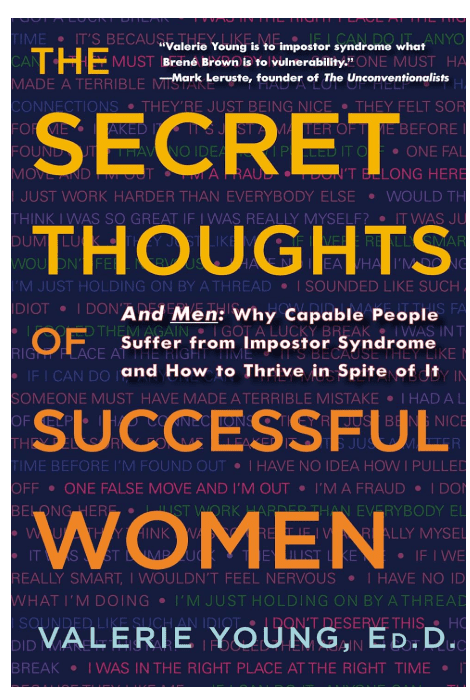
I love how this book points out the problem and offers practical ways to fix it. I started an “achievement journal” to note positive feedback and accomplishments. I also used the “talk-back technique” when self-doubt crept in. Now, I spend less time questioning myself and more time enjoying my successes!
Best Self-Help Books for Resilience
Ancient philosophy offers wisdom for today. Ryan Holiday’s “The Obstacle Is the Way” taught me stoic principles. These ideas changed how I handled setbacks. I used to panic when things went wrong, but this book taught me to see obstacles as opportunities.
For instance, when I lost a major client last year, I asked myself, “What does this situation make possible?” This mindset shift helped me pivot my business model, creating a more stable income. Adopting this stoic approach has dramatically improved my resilience and problem-solving skills.
Breaking Negative Thought Cycles
“Feeling Good: The New Mood Therapy” by David Burns helped me identify and challenge the thoughts that increased my anxiety. I realised how often I engaged in catastrophic thinking without knowing!
The strategies in this book gave me tools to break negative thought patterns. When I think, “This project is a complete disaster,” I pause and ask, “Is this true? What evidence supports or contradicts this thought?”
This practice has lowered my stress, allowing me to face challenges with a clearer mind.
From Self-Criticism to Self-Compassion
Finally, Kristin Neff’s “Self-Compassion: The Proven Power of Being Kind to Yourself” changed how I talk to myself.
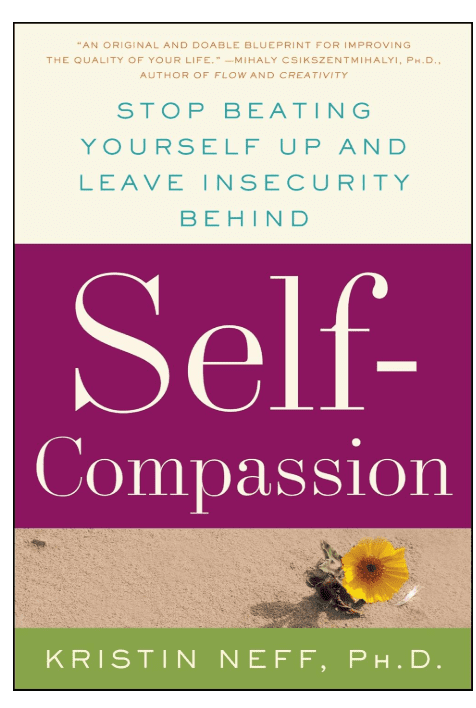
I used to believe that harsh self-criticism pushed me. However, Neff’s research shows that self-compassion builds resilience and motivation.
Through practices like the self-compassion break, I’ve learned to treat myself kindly, just like a friend. I recover from setbacks quickly now. I take healthy risks, knowing I can support myself no matter what happens. This shift has been an influential part of my growth journey.
These mindset transformation books changed how I think, feel, and face life’s challenges.
I built thinking patterns for success. I focus on a growth mindset, tackle imposter syndrome, and embrace stoic wisdom.
I also focus on breaking negative cycles and practising self-compassion. Your mindset isn’t fixed. You can change it with good guidance and practice and discover your potential!
Productivity Powerhouses: Systems for Maximum Achievement
Have you ever felt buried under your to-do list? Some people achieve so much while you struggle with tasks. I’ve been there!
After years of battling productivity, I found game-changing books that transformed my approach. Here are the productivity powerhouses that reshaped my work habits and helped me achieve more than I imagined.
Best Self-Help Books for Focused Productivity
First, Cal Newport’s “Deep Work” changed everything. Before this book, I was constantly distracted, jumping between emails, social media, and honest work. Newport’s idea of deep work showed me the power of uninterrupted focus.
Now, I block out two-hour “deep work” sessions in my calendar. I turn off notifications and focus on one important task. As a result, I finish my most challenging work in half the time! I also schedule specific times for shallow tasks like emails and admin work. This helps me feel more controlled instead of letting interruptions rule my day.
The Power of Atomic Habits
Next, James Clear’s “Atomic Habits” taught me that small changes can lead to big results. I once thought productivity needed massive routine changes, but Clear’s approach is doable. His 1% improvement philosophy showed me that consistency is key.
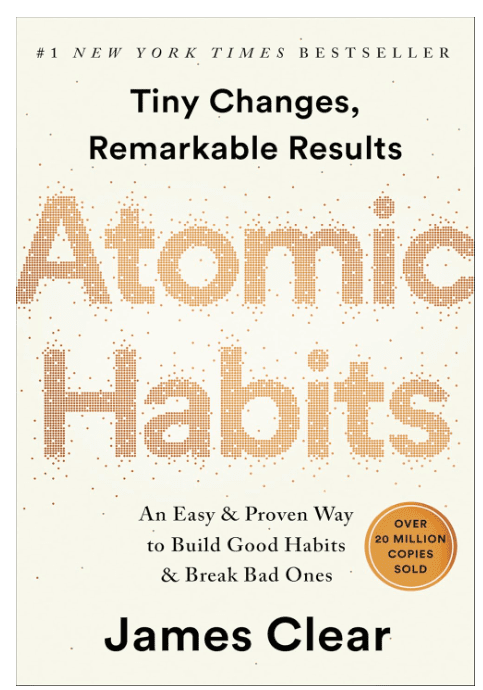
For example, I used his habit stacking technique. I linked a new habit (reviewing my priorities) to an existing one (making my morning coffee). This simple change helps me start each day with clarity. I also created a dedicated workspace free from distractions. These minor tweaks have added up to significant productivity gains over time.
Best Self-Help Books for Taking Action
Additionally, Brian Tracy’s “Eat That Frog” tackled my biggest productivity killer: procrastination. The title suggests tackling your hardest task first thing in the morning, and this approach transformed my workflow.

Before, I filled my day with easy tasks while avoiding essential projects. I identify my “frog” each evening and commit to it the next day. My productivity has soared, and my stress has dropped. Completing challenging tasks early creates momentum that carries me through the day.
Best Self-Help Books for Strategic Planning
Moreover, Timothy Ferriss’s “The 4-Hour Workweek” changed my view on time management. While I’m not aiming for a four-hour workweek, his ideas on elimination, automation, and delegation have been invaluable.
I spent hours on tasks that didn’t help me achieve my goals. After reading Ferriss’s book, I audited my activities and eliminated what wasn’t working. I automated repetitive tasks with tools like Zapier and delegated work to others. Now, I have more time for high-impact activities that drive success.
Energy Management vs. Time Management
Finally, Jim Loehr and Tony Schwartz’s “The Power of Full Engagement” showed me that managing energy, not just time, is vital for sustained productivity. I used to push through fatigue, working long hours but achieving less.
This book taught me that taking breaks is essential for peak performance. I now incorporate short breaks and respect my energy rhythms. For instance, I schedule creative work in the morning and admin tasks in the afternoon. I also follow their advice on physical energy management through better sleep, nutrition, and exercise. These changes have boosted my productivity and overall well-being.
In summary, these productivity powerhouses have transformed how I approach work. I’ve created systems that support progress toward my goals by using deep work strategies, building atomic habits, overcoming procrastination, rethinking time management, and focusing on energy management. Remember, productivity isn’t about doing more—it’s about doing the right things effectively. With these books as your guide, you can build productivity systems that lead to achievement without burnout!
Financial Freedom: Self-Help Books for Building Wealth
Have you ever wondered what separates the financially free from those who struggle paycheck to paycheck? I certainly did! For years, I was stuck in a cycle of earning and spending without making real progress toward my financial goals. That all changed when I discovered some life-changing books about building wealth. Today, I’m excited to share the financial freedom roadmap that transformed my relationship with money and put me on the path to true financial independence.
Best Self-Help Books for Money Psychology
First and foremost, Robert Kiyosaki’s “Rich Dad Poor Dad” completely revolutionised how I think about money. Before reading this eye-opening book, I was focused solely on earning a higher salary. However, Kiyosaki’s distinction between assets and liabilities made me realise I had been approaching wealth building all wrong!
For example, I used to proudly spend my bonuses on new cars or vacations, thinking I deserved to reward myself. After understanding the principles in this book, I redirected that money toward income-producing assets like dividend stocks and rental property. As a result, I now have multiple income streams beyond my regular job. Additionally, the book’s emphasis on financial education inspired me to make learning about money a lifelong priority rather than an occasional concern.
Debt Elimination Strategies
Furthermore, I couldn’t talk about financial freedom without mentioning Dave Ramsey’s “The Total Money Makeover.” When I first picked up this book, I was drowning in consumer debt and had no emergency fund. Ramsey’s straightforward “baby steps” approach gave me a clear roadmap out of financial chaos.
For instance, his debt snowball method helped me tackle my credit cards individually, starting with the smallest balance. The psychological wins from paying off each debt fuelled my motivation to continue. Moreover, his emphasis on building an emergency fund before aggressive investing saved me countless times when unexpected expenses arose. Consequently, I now sleep better at night, knowing I have financial security against surprises.
Best Self-Help Books for Wealth Building
In addition, JL Collins’s “The Simple Path to Wealth” demystified investing in a way no other book had done before. The financial industry had always seemed intimidatingly complex, but Collins broke everything down into understandable concepts and actionable steps.
His straightforward approach to index fund investing enhanced my confidence to start building my portfolio without feeling overwhelmed by options. For example, I followed his recommendation to focus on low-cost total market index funds rather than trying to pick individual stocks. Subsequently, my investments have grown steadily without requiring constant monitoring or stress. Furthermore, his explanation of the 4% rule helped me calculate precisely how much I need to save for financial independence.
Creating Multiple Income Streams
Moreover, Rachel Richards’s “Passive Income, Aggressive Retirement” opened my eyes to the possibilities of creating income that doesn’t require active work. Previously, the only way to earn more was to work more hours or get a better job. However, this book showed me numerous possibilities for generating passive revenue.
Inspired by Richards’ success with digital products, I created an online course teaching skills from my professional expertise. Additionally, I implemented her suggestions for rental property investing and dividend stock selection. Consequently, I’ve built several income streams that continue paying me whether I’m working or not. This diversification has accelerated my journey to financial freedom and reduced my dependence on traditional employment.
Best Self-Help Books for Digital Finance
Finally, Ramit Sethi’s “I Will Teach You to Be Rich” brought my financial strategy into the digital age with practical automation techniques. I spent monthly hours paying bills, tracking expenses, and managing accounts. However, Sethi’s automation framework helped me create a system that handles my finances with minimal effort.
Following his advice, I negotiated lower rates on everything from credit cards to insurance. Furthermore, when my paycheck arrives, I set up automatic transfers that direct my money to appropriate accounts for bills, investments, and savings. As a result, I’ve eliminated the willpower required to make sound financial decisions because the system handles everything automatically. Therefore, I can focus my energy on earning more rather than constantly making decisions about spending less.
In conclusion, these financial freedom books have completely transformed my relationship with money and accelerated my path to wealth. By shifting my mindset about assets and liabilities, eliminating debt, investing wisely, creating passive income streams, and automating my finances, I’ve made more progress toward financial independence in the past few years than in all the previous decades combined. Remember, economic freedom isn’t just about having more money—it’s about creating the security and options that allow you to live on your terms!
Relationship Intelligence: Books for Better Connections
Have you ever wondered why some people effortlessly build strong networks and meaningful connections while others struggle? I certainly did! For years, I avoided networking opportunities altogether or felt drained and inauthentic when I forced myself to participate. That all changed when I discovered some game-changing books about relationship intelligence. Today, I’m excited to share how these insights transformed my professional advancement and personal fulfilment!
Communication Skills That Open Doors
First of all, Kerry Patterson’s Crucial Conversations completely revolutionised how I handle high-stakes discussions. Before reading this eye-opening book, I would either avoid difficult conversations entirely or handle them so poorly that relationships suffered.

For example, when facing disagreements with colleagues, I either clam up or become defensively argumentative. However, after applying the techniques in this book, I learned to create safety in conversations through specific language patterns and genuine curiosity. As a result, I’ve resolved conflicts that previously seemed impossible and built stronger work relationships in the process. Additionally, these skills helped me negotiate a promotion that I might have otherwise been too intimidated to pursue!
Best Self-Help Books for Authentic Connections
Furthermore, Keith Ferrazzi’s “Never Eat Alone” transformed my entire approach to professional networking. I used to view networking as a necessary evil—something transactional and slightly manipulative. However, Ferrazzi’s relationship-first philosophy showed me true networking is about generosity and genuine connection.

For instance, I now focus on how I can help others rather than what I can get from them. Subsequently, I’ve built a network of meaningful relationships rather than a collection of business cards. Moreover, his practical suggestions—like connecting people who might benefit from knowing each other and following up consistently—have helped me create a reputation as a valuable connector. Consequently, opportunities now seem to find me rather than requiring constant hustle and self-promotion!
Emotional Intelligence for Leadership Success
In addition, “Emotional Intelligence 2.0” by Travis Bradberry and Jean Greaves helped me develop a greater awareness of my emotions and those of others. I had always considered myself reasonably self-aware, but this book’s assessment tool revealed several blind spots in my emotional intelligence.
I’ve developed much greater emotional self-regulation through daily practices like emotion labelling and trigger identification. For example, when feeling frustrated by team members, I now recognise the emotion earlier and can choose my response rather than reacting impulsively.
Additionally, I’ve improved my ability to read others’ emotional cues accurately, which has made me a more effective leader and collaborator. These skills have been crucial for navigating complex workplace dynamics and building trust with my team.
Navigating Difficult Personalities
Moreover, Douglas Stone’s “Difficult Conversations” taught me how to handle interactions with challenging personalities without losing my cool or compromising my values. Previously, I would either avoid difficult people entirely or engage in unproductive power struggles.

The framework in this book helped me understand that most difficult interactions involve three conversations happening simultaneously: the what happened conversation, the feelings conversation, and the identity conversation.
For instance, when dealing with a particularly critical colleague, I learned to separate their feedback from my sense of self-worth and to address the underlying emotions at play. As a result, I’ve transformed several antagonistic relationships into productive partnerships.
Furthermore, I’ve become known as someone who can work effectively with diverse personalities, which has opened doors to leadership opportunities.
Personal Relationships That Support Professional Success
Finally, John Gottman’s “The Relationship Cure” showed me that the quality of our personal relationships significantly impacts our professional success. I used to compartmentalise my work and personal life, not realising how interconnected they truly are.
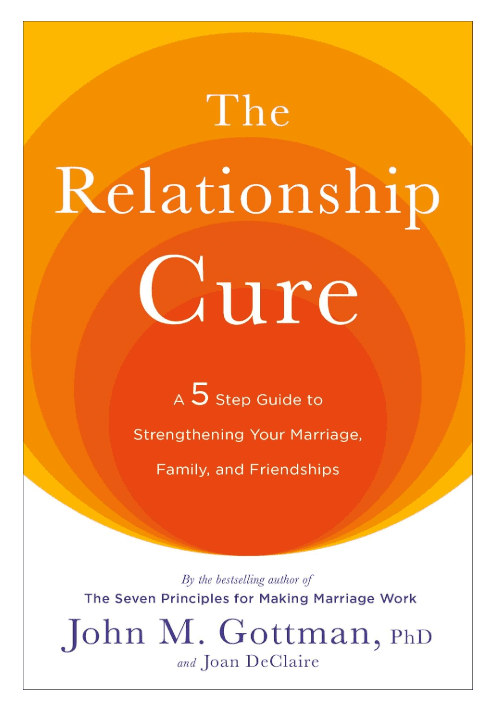
Gottman’s research on “bids for connection” helped me recognise when loved ones reached out for engagement, even subtly. For example, I now prioritise fully engaging when my partner shares something meaningful rather than giving a distracted half-response while checking email. Consequently, my home relationships have become more fulfilling and supportive.
Therefore, I bring more energy and focus to my professional life rather than depleting resources and managing relationship stress. This integration of personal and professional well-being has been key to my sustainable success.
In conclusion, these relationship intelligence books have completely transformed how I connect with others across all domains of life. By mastering crucial conversations, adopting a generous networking approach, developing emotional intelligence, navigating difficult personalities, and nurturing personal relationships, I’ve created an interconnected web of meaningful connections that support my success and fulfilment.
Remember, relationship intelligence isn’t just a nice-to-have soft skill—it’s the foundation upon which lasting success is built!
Conclusion
The best self-help books for success in 2025 offer far more than just motivational quotes – they provide comprehensive frameworks for transforming your approach to life’s challenges.
Whether you’re seeking to master your mindset, optimise your productivity, achieve financial freedom, or strengthen your relationships, this curated selection gives you the tools to excel in all dimensions of success.
Remember, reading is just the first step – implementation is where real change happens! Which of these influential books will you start with to make 2025 your breakthrough year?
